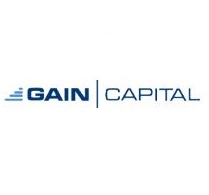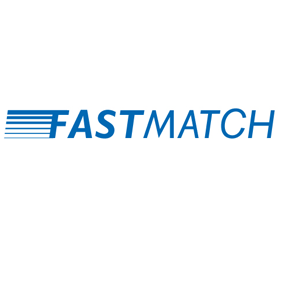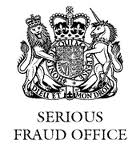
This past week saw big stories from all walks of the financial world. From Alpari UK depositors receiving a reassuring update to an investigation beginning on the controversial last-look loophole used by banks in the forex rate-rigging scandal, here are last week's top stories:
Alpari UK Depositors to Be Compensated up to £50,000
On Wednesday, the UK Financial Services Compensation Scheme officially stated what many already expected: Clients of Alpari UK will be compensated up to £50,000. Clients who deposited more than that will lose the additional amount.
Alpari UK's special administration process is still ongoing, with the latest news being that customers have begun getting access to the claims portal set up by KPMG, the special administrator.
The FSCS will obtain information on confirmed claims from KPMG. Customers of Alpari UK who would rather contact the FSCS directly are free to do so, but only after explicitly mentioning their intention on KPMG's claims portal.
According to the announcement, FSCS will pay out on the basis of account balances agreed upon on KPMG's claims portal. Once a customer accepts FSCS compensation, the customer's entire claim will be transferred to FSCS.
Henceforth, FSCS will receive any future dividend from KPGM that would otherwise have gone to the client--if the client is entitled to such. Only clients with claims totalling about £50,000 are entitled to dividends.
GAIN Capital's Negative Balances Only $2.5 Million

Last week we took a closer look at GAIN Capital's Q4 2014 report. The firm posted record quarterly and full-year revenues, with revenue up 37 percent (to $114.7) from 2013's Q4 and net income up 309 percent (to $17.6 million).
Driving the revenues was a mix of growth in the company's retail FX and CFD offerings, its commission-based institutional and futures businesses, as well as its acquisition of GFT. The synergies from the broker's acquisition of GFT especially created lots of cost saving.
However, the firm did underperform in its EBITDA as a percentage of revenues. For 2014, EBITDA was 20.2 percent of revenues, while in 2013 it was 22.7 percent, more importantly it was below the 26 percent GAIN experienced in the first nine months of 2013 before its acquisition of GFT. This EBITDA illustrates that despite cost reductions from the merger, profit margins were lower.
As well, while GAIN was successful in increasing its institutional market share in 2013--with GFT's Sales Trader division rising from $10.4 million in 2013 to $54 million in 2014--the company was less successful in their retail segment. With over $50 million in 2014 revenues coming from GFT's Sales Trader, GAIN may not be achieving any growth at all from GFT's retail trading division.
Dangers of Trading Forex
Readers gravitated to a post on the dangers of trading forex this past week. The ongoing debate being waged across mass media led us to ask some experts for their opinions before and after the CHF crisis.
Speaking with Forex Magnates, Interactive Brokers' CEO, Thomas Peterffy, explained, "A trader should be aware that there is a time when they can lose more money than what they deposited with their broker and they have to be good for it."
For this very reason, Head of Analysis Klaus Ikast at NetDania explained, "Until the novice trader has built specialized knowledge and strong skills, the leverage should be kept between 1:1 and 1:3. Leverage of 200:1 or 500:1 has no place in a serious trading strategy. Use common sense."
He also elaborated, "If traded right, the forex market does not even remotely resemble a casino. It is a matter of focus--the retail business is only around 6 percent of the total market turnover. Granted, some retail brokers run their trading business like a casino!" He described the biggest same in retail forex as "giving customers the impression that it is easy to make money."
And herein lies the real danger, trading forex has become much more accessible for retail investors, but it hasn't become any easier. In the words of Ikast, "Successful forex trading requires a high level of knowledge and skills." Unfortunately, these are traits naturally out of reach of the novice investor targeted with "easy money" marketing.
FastMatch Offers Free Brokerage to Certain Clients

Forex Magnates learned last week that FastMatch will be changing their fee schedule, effective April 1st, and will be offering free brokerage service to clients providing Liquidity on their platform via orders versus quotes (last look).
The company is apparently trying to increase volumes of non-bank market makers on their platform by making it more affordable for them to act as Liquidity Providers .
“To show deep commitment to lowering clients costs and improving the market structure of the FX market, FastMatch will keep the new free pricing in place at least through the end of 2015,” read comments by Dmitri Galinov, CEO of FastMatch, in an email to clients.
“FastMatch is now cheaper and faster than competing Interbank ECN platforms to execute your limit orders, and we are looking forward for clients to take advantage of this incredible offer to build a better interbank market,” he added.
Last Leg for Last Look?
Last week, the US Department of Justice (DoJ) together with the Securities and Exchange Commission (SEC) opened their investigation into last look--a tactic used by major global FX banks to renege on losing trades at the last minute. A broader ongoing investigation of the forex market led them to last-look practices.
Regulators around the world have been investigating the practices of banks in the FX market for some time. Until now, the investigations have only been known to focus on a conspiracy to manipulate FX rates by bank traders.
Earlier this month ACI, a non-profit association of market professionals representing bodies such as exchanges, hedge funds and central banks also addressed the questionable procedure. "[Last look] should only be used in order to mitigate technological anomalies and latencies when showing firm prices to customers,” reads an updated Code of Conduct published by the association.
















